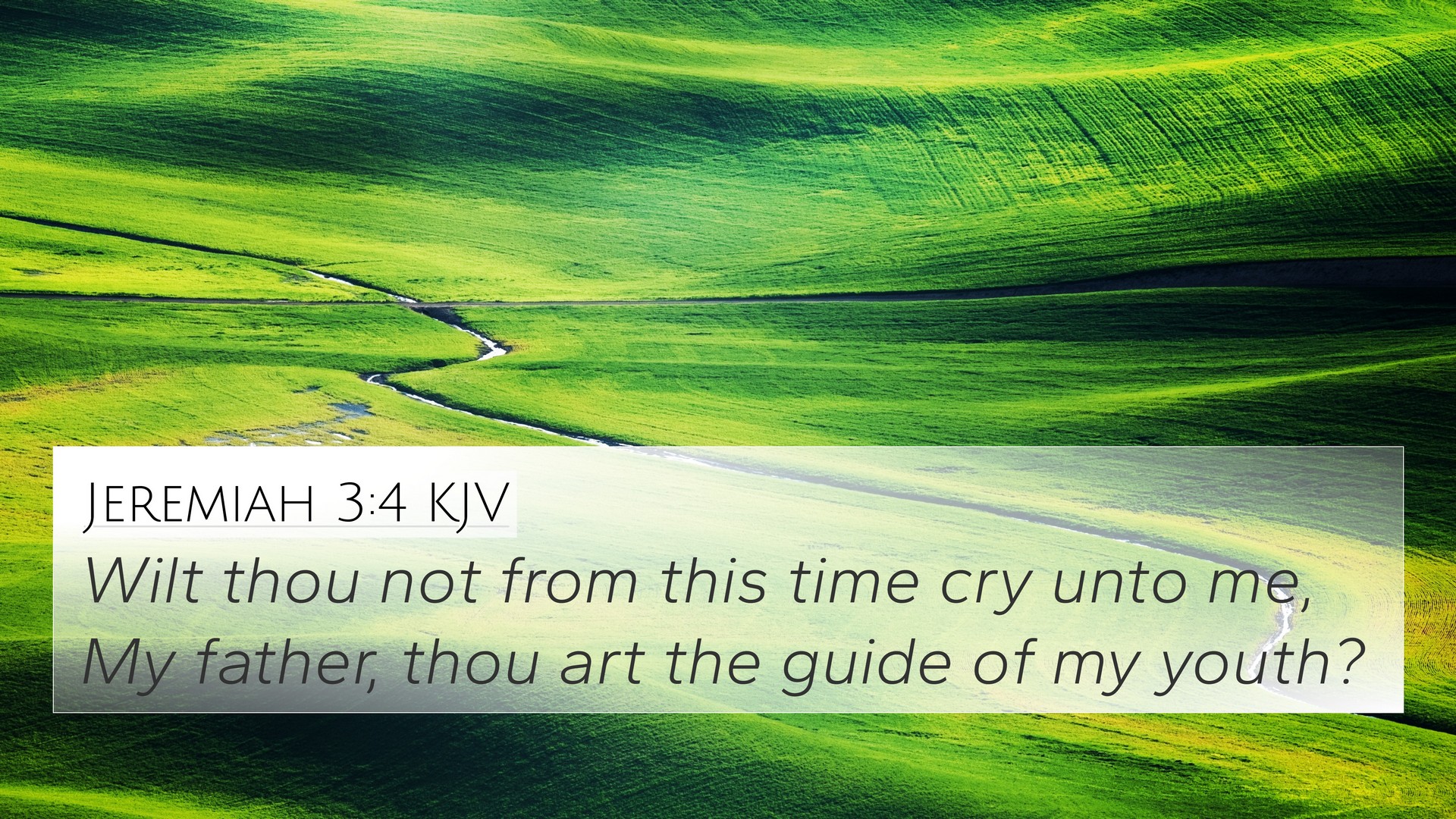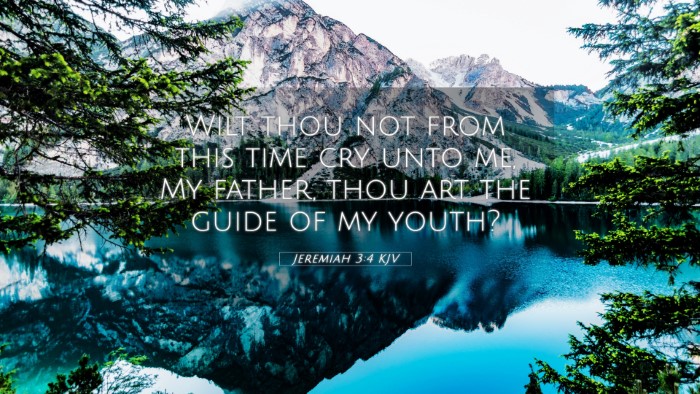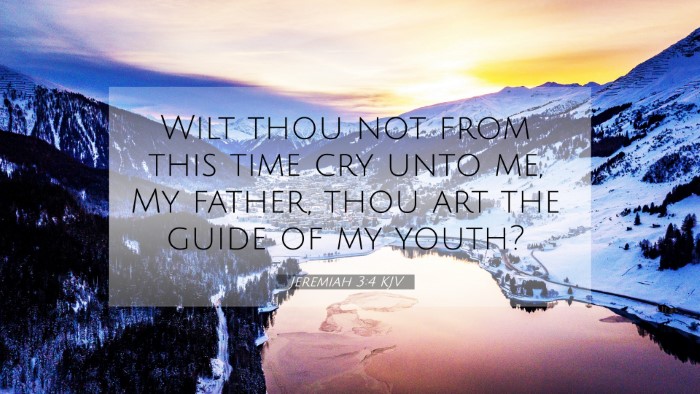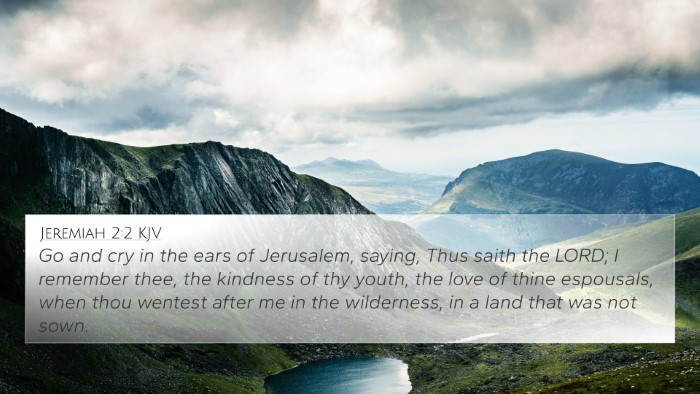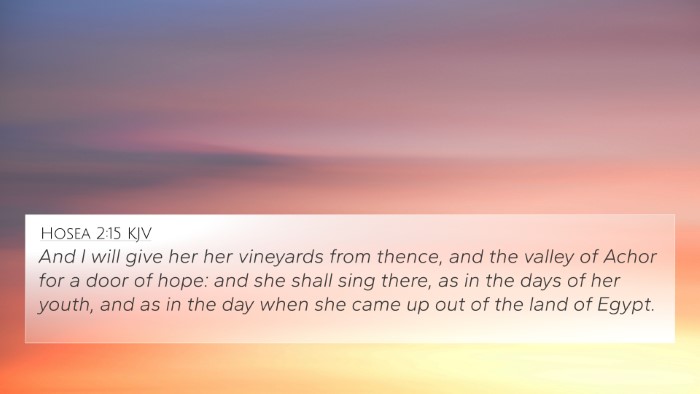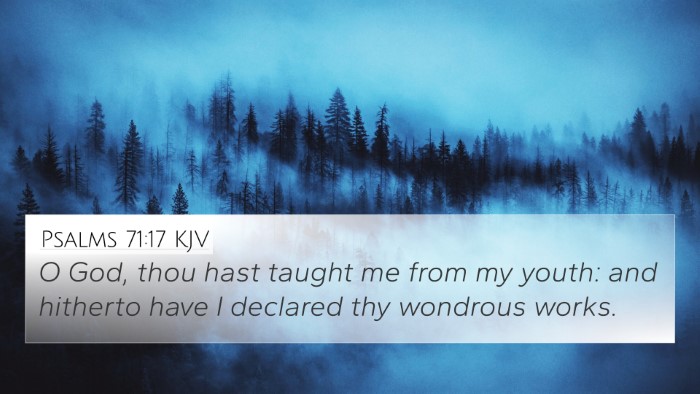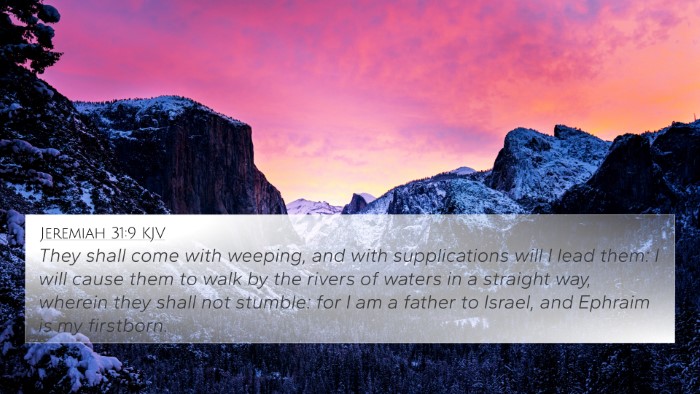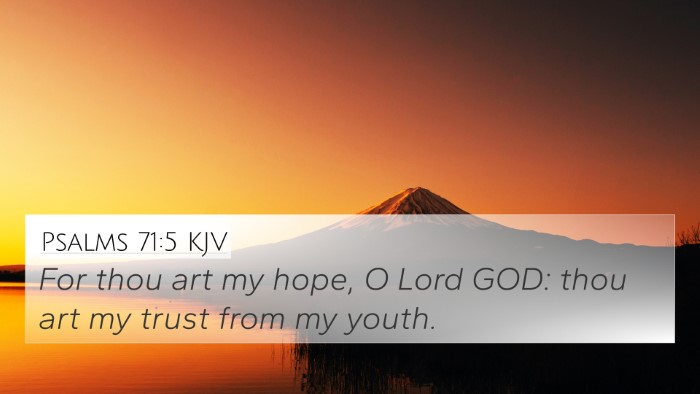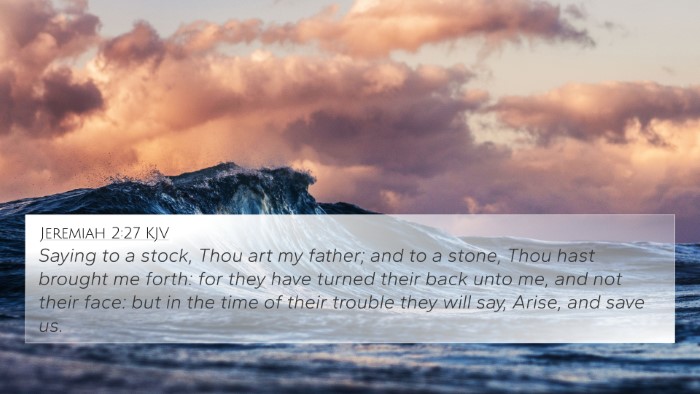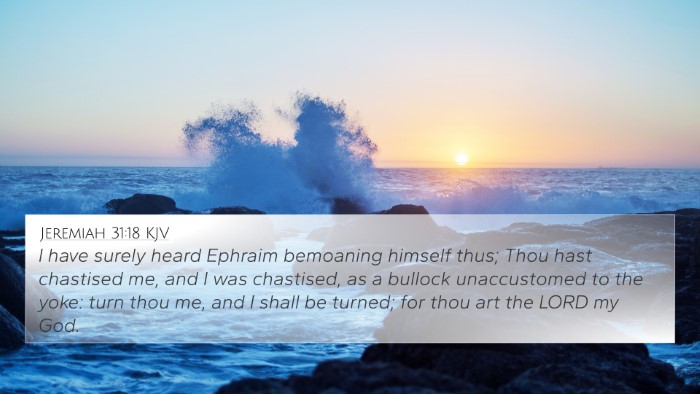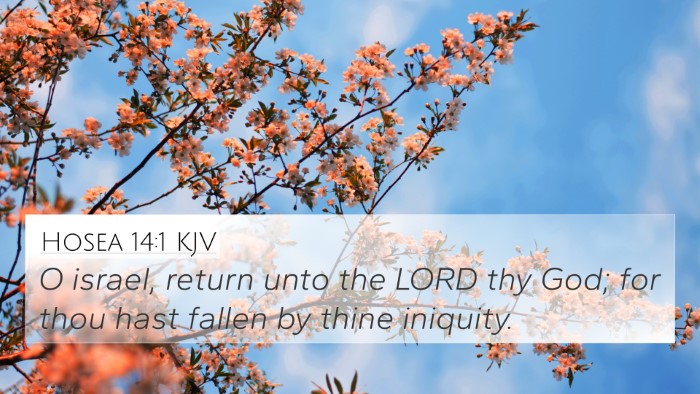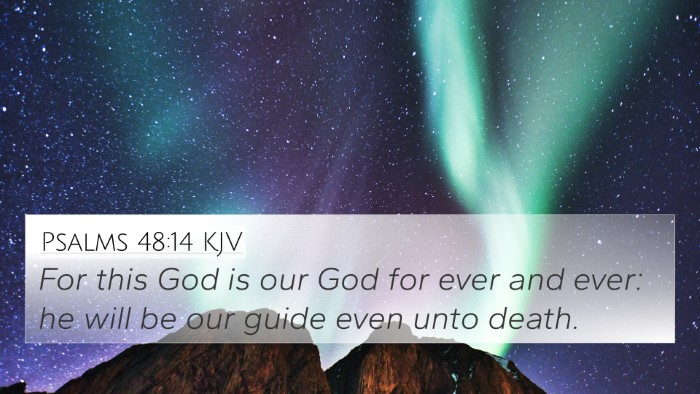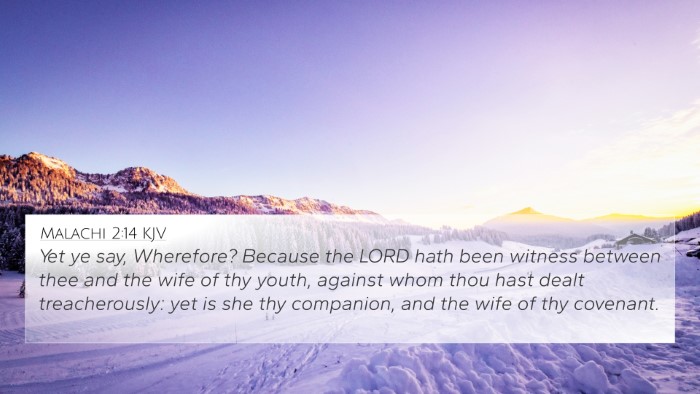Understanding Jeremiah 3:4
Jeremiah 3:4 states: "Will you not from this time cry unto me, My father, thou art the guide of my youth?" This verse reveals deep significance in the context of repentance and the relationship between God and Israel.
Insight from Public Domain Commentaries
Jeremiah, as a prophet, often communicated God’s heart towards His people. This particular verse encapsulates a moment of divine appeal, emphasizing both the urgency and intimacy of God’s call to His people. The following summaries encapsulate insights from notable commentaries on this verse:
Matthew Henry's Commentary:
Henry accentuates the emotional tone of the plea, marking it as a cry for intimacy. The phrase "My father" signals a personal relationship characterized by faithfulness. It illustrates the notion that impending dangers could prompt Israel to return to God, acknowledging His role as their guide and protector during their formative years.
Albert Barnes' Notes:
Barnes discusses the societal and spiritual context in which Jeremiah preached. He highlights the need for Israel to see God not just as a distant deity but as a close and guiding father figure. The emphasis here is on returning to God, recognizing His past guidance and seeking His direction moving forward.
Adam Clarke's Commentary:
Clarke elaborates on the implications of calling God "My father." He interprets this plea as Israel's cry for help in their time of need. Clarke underscores that this request for guidance indicates a recognition of previous failings and a desire for restoration in their relationship with God, marking a return to reliance on His paternal care.
Key Themes and Cross References
Jeremiah 3:4 touches upon themes of repentance, fatherhood of God, and the human condition. The following cross-references elucidate these themes further:
- Hosea 14:2: "Take with you words, and turn to the Lord." This verse emphasizes the call to repentance and returning to God.
- Isaiah 63:16: "Doubtless you are our father..." reinforcing the father-son relationship between God and His people.
- Deuteronomy 32:6: "Do you thus requite the Lord, O foolish people and unwise?" acknowledges the significance of recognizing God’s guidance.
- Matthew 7:11: "If you then, being evil, know how to give good gifts to your children..." highlights God's nature as a good parent.
- Psalm 103:13: "Like as a father pities his children, so the Lord pities them that fear him." This underscores God's compassion and loving guidance.
- Romans 8:15: "For ye have not received the spirit of bondage again to fear; but ye have received the Spirit of adoption..." referencing the intimate relationship believers have with God.
- 1 John 3:1: "Behold, what manner of love the Father hath bestowed upon us, that we should be called the sons of God!" highlights the theme of divine parental love.
- Hebrews 12:7: "If ye endure chastening, God dealeth with you as with sons; for what son is he whom the father chasteneth not?" emphasizing divine discipline as an aspect of sonship.
- Proverbs 3:12: "For whom the Lord loveth he correcteth; even as a father the son in whom he delighteth." This connects guidance with familial love and correction.
Comparative Analysis and Thematic Connections
The invitation to call God “My father” signifies a deep and personal relationship that God desires with His people. This plea is set against a backdrop of Israel's unfaithfulness and a longing for a return to the ways that characterized their early relationship with God as their guide. Here, we recognize a comprehensive Bible verse analysis that highlights the recurring themes in Scripture about God’s fatherly role.
Connections to New Testament Teachings
In the New Testament, the depiction of God as Father is enriched through the teachings of Jesus Christ. Verses like Matthew 6:9, where Jesus instructs to pray "Our Father which art in heaven," echo the theme of God’s fatherly guidance found in Jeremiah. This illustrates how the Old Testament foundational concepts flow into New Testament teachings, offering a coherent understanding of God’s relationship with humanity.
Tools for Cross-Referencing
To delve deeper into these connections, utilizing tools such as a Bible concordance can greatly assist in identifying and exploring related verses. Additionally, a comprehensive Bible cross-reference guide can help facilitate cross-referencing Bible study to uncover the rich tapestry of inter-Biblical dialogue.
Conclusion
In conclusion, Jeremiah 3:4 serves as a poignant reminder of the relational aspect of the divine. Through understanding this verse in conjunction with the insights from various commentaries and cross-references, one can appreciate the depth of God's yearning for a reconciled relationship with His people. This exploration not only fosters a deeper understanding of the verse itself but also invites believers to seek a renewed journey with God as their guiding father.
